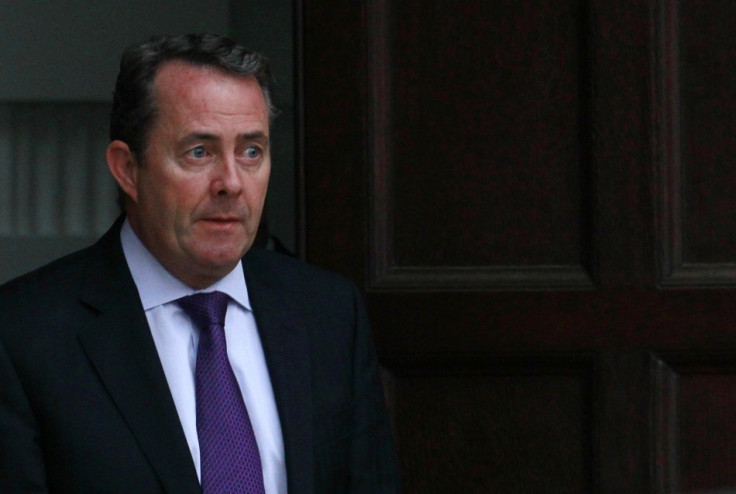Liam Fox Launches Attack on 'Hate' Media

Liam Fox has launched his own attack on the media following a week of press "vindictiveness, even hatred" that ended in his resignation.
The former defence secretary was speaking from the back benches in the House of Commons, where he told MPs that although mistakes were made, "the media frenzy" surrounding the story "should worry them all".
He said: "I accept the consequences for me without bitterness or rancour. I do not blame anyone else and I believe that you do not turn your back on your friends or family in times of trouble.
"It is however unacceptable that family and friends who have nothing to do with the central issues should be hounded and intimidated by elements of the media including in this case elderly relatives and children.
"It is difficult to operate in the modern environment, as we know, where every bit of information, however irrelevant and immaterial, is sensationalised and where opinions or even accusations are treated as fact."
PMQs
Earlier during PMQs the Labour leader, Ed Miliband, called on the prime minster to reveal the full facts. But Cameron avoided the questions on his former defence secretary saying: "I know for a fact that he [Miliband] wanted to ask these questions last week. If you want to jump on the bandwagon, make sure it's still moving."
Damning Report
Downing Street confirmed Tuesday night that Prime Minister David Cameron would have sacked Defence Secretary Liam Fox had he not resigned. The prime minister said, following an internal report from the Cabinet Secretary on the controversial relationship between Fox and personal friend Adam Werritty: "His conduct was not consistent with remaining a member of the government".
The 10-page document compiled by Cabinet Secretary Sir Gus O'Donnell revealed that the Ministry of Defence permanent secretary, Ursula Brennen, had warned Fox about his relationship with Werritty, without effect.
Furthermore, it revealed that Fox broke several key points of the ministerial code where personal and professional responsibilities had been "blurred."
Fox was found to pose severe security risks in one of the most sensitive departments in government by giving Werritty access to his diary, and repeatedly left foreign officials with the impression that Werritty was part of the government or was working for Fox in an official capacity. The report also found that Fox rejected officials' requests to be present at two meetings attended by Werritty, first with businessman Harvey Boulter in Dubai in June and then with senior Israelis in Tel Aviv in February.
© Copyright IBTimes 2025. All rights reserved.





















